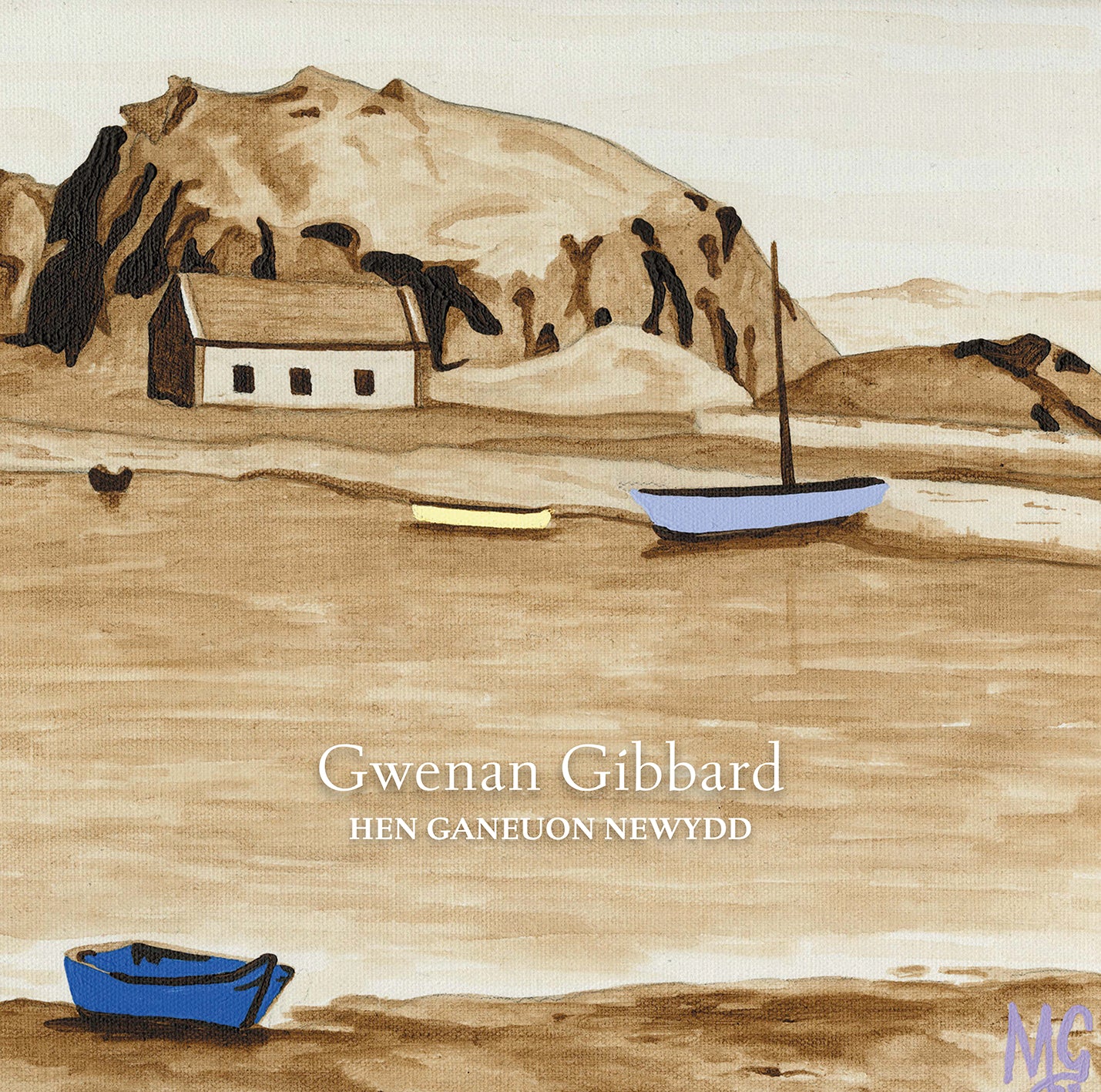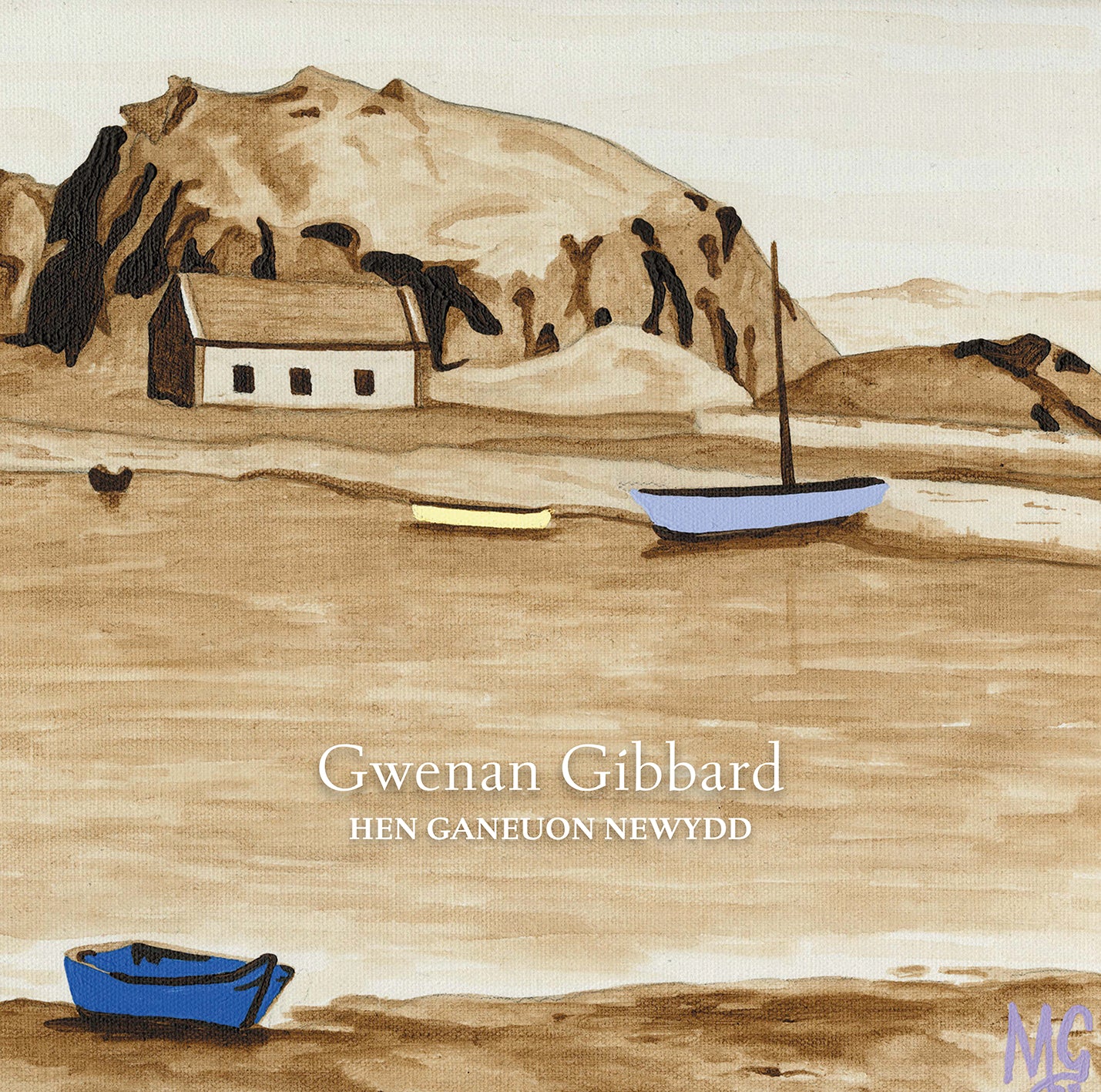Gwenan Gibbard
Hen Ganeuon Newydd
Hen Ganeuon Newydd
SKU:SCD2850
Couldn't load pickup availability
Following the success of ‘Cerdd Dannau’, an album which breathed new life into the ancient tradition of ‘cerdd dant’, Hen Ganeuon Newydd (New Old Songs) features the folk-songs of the predominantly Welsh speaking areas of the Llŷn Peninsula and neighbouring Eifionydd, north-west Wales – Gwenan’s home area. A reflection of a rural and simple way of life at the end of the 19th century and the beginning of the 20th century, the songs stem from close-knit communities and speak of local characters and happenings, love and loss, bringing together the traditions of the land and the sea.
A century or more ago Welsh would be the only language of the majority of the people of Llŷn and Eifionydd and singing and writing poetry would be a very popular pastime. Whether it would be in the stable-loft, the cobbler’s village workshop, the quarrymen’s cabin at lunchtime or at home by the hearth, gathering together to socialise and to share songs, stories, rhymes and verses would be an integral part of everyday life. Today, these songs give us a glimpse of this area’s unique history and traditions.
Gwenan is currently studying for a PhD degree with Bangor University, having won a scholarship funded by Coleg Cymraeg Cenedlaethol and The National Library of Wales to study the music archive of Dr Meredydd Evans and Phyllis Kinney. The research has allowed her to concentrate on the folk-songs of Llŷn and Eifionydd. “The starting point and the inspiration for this album”, says Gwenan, “came from the archive of lifelong researchers in the field of Welsh traditional music, namely Dr Meredydd Evans and Phyllis Kinney. Their vast and extremely important archive are now part of the Welsh Music Archive at The National Library of Wales, Aberystwyth. While exploring their collection I came across many unpublished and unknown songs collected by various singers, musicians and collectors from Llŷn and Eifionydd, such as R H Evans, Shân Emlyn, Daniel Evans and Robert Jones ‘Dwyfor’, and others such as Caradog Pugh from Montgomeryshire. The archive also led me to lesser-known and previously unpublished collections of folk-songs and ballads by two significant collectors - Gwilym y Rhos and Thomas Rowlands and I thank their families for sharing their personal family collections with me.”
Daniel Evans was a singer from the village of Y Ffôr, near Pwllheli, and the epic ballad, ‘Cariad y Garddwr’ (The Gardener’s Sweetheart), which follows the story of a young lady in London who refuses the affections of the gentry and chooses her father’s handsome Welsh gardener, was sung by Daniel to avid collector Dr J Lloyd Williams in 1924. ‘Y Gwcw Fach Lwydlas’(The Little Grey Cuckoo) is a very different version of the well-known folk-song ‘Y Deryn Pur’ (The Gentle Dove) and was collected by Shân Emlyn from the Welsh speaking community in Patagonia and was also heard on the Llŷn Peninsula. R H Evans was a musician and an academic. Having been Professor of Agriculture at the University of Reading, in 1913 he became the first Principal of Madryn Agricultural College in Llŷn. He collected many songs from communities in Llŷn and Eifionydd, including ‘Meibion a Merched’ (Lads and Lasses) a song of deceit and betrayal, popular with the stable-loft farm-hands and the love song ‘Dacw Long’ (There’s a Ship). Robert Jones ‘Dwyfor’ spent most of his working life as a tailor in London. While home on holiday in Eifionydd he sang many of the songs he learnt from his father to J Lloyd Williams. These songs are part of J Lloyd Williams’ archive at The National Library, Aberystwyth and one of them is ‘Y Morwr Mwyn’ (The Gentle Sailor), a sad song about a sailor who’s achievements and bravery are now long forgotten without a headstone or a memorial of any kind to mark his life.
‘Sgert Gwta Nain’ (Nain’s Short Skirt) is a humorous ballad giving a vivid picture of someone’s quite adventurous ‘nain’ (grandma), found in Meredydd Evans and Phyllis Kinney’s archive, while ‘Y Gwcw Ryfel’ (The War Cuckoo) is also a ballad by an unknown author, from Caradog Pugh’s collection.
The remaining songs on the album come from the collections of two notable characters - Gwilym y Rhos (William Jones 1851–1925) and Thomas Rowlands (1905–1986). Gwilym y Rhos was a cobbler from the small village of Rhoshirwaen at the tip of the Llŷn Peninsula. He was also a poet and part of a society of poets who regularly convened at his workshop to discuss and to share their work. Their poetry would also, quite often, be sung to popular tunes of the day. Gwilym y Rhos was a keen collector of many things, including songs and ballads. One of these songs is ‘Trafnidiaeth yn Llŷn’ (Transport in Llŷn), a local song, full of the history of transport in the area.
Born to a family of musicians and poets Thomas Rowlands spent his time as a farm-hand at a number of large farms in Llŷn taking a prominent part in the stable-loft gatherings when the young men from local farms would congregate to share music and poetry, often on a Sunday night, following the chapel service. It was here that he learnt the folk-songs which would be part of his repertoire as a singer for years to come. Fortunately, later on in life, he noted these local songs and verses that he learnt through the oral tradition. ‘Anni Bach Rwy’n Mynd i Ffwrdd’ (Dear Anni I’m Going Away) a sad farewell song, and ‘Ffarwel i Bencaenewydd’ (Farewell to Pencaenewydd) a sailor’s farewell song, are two of the popular songs he learnt in the stable-loft at Neigwl Ganol farm on the Llŷn Peninsula. Another which only recently came to light is the light-hearted ballad ‘Y Drydedd Waith yw’r Goel’ (Third Time Lucky), written by Thomas Rowlands’ uncle, Daniel. ‘Rhigymau’ (Rhymes) were again noted by Thomas Rowlands and are throw away, humorous rhymes and verses which he remembered as a young man in Llŷn.
The album was co-produced by Aled Wyn Hughes and Gwenan Gibbard and with musical contributions by Gwilym Bowen Rhys (Guitar, Bouzouki and Mandolin), Patrick Rimes (Fiddle and Viola) and Aled Wyn Hughes (Bass), Hen Ganeuon Newydd is a contemporary celebration of the stories of the past - a true representation of a nearly forgotten culture.
Cover Artwork: ‘Pwllheli Erstalwm’, Malcolm Gwyon
(With thanks to the National Library of Wales and Coleg Cymraeg Cenedlaethol for the financial support to the research work, and thank you also to Bangor University)
1.Meibion a Merched
2.Ffarwel i Bencaenewydd
3.Y drydedd waith yw'r goel
4.Y gwcw fach lwydlas
5.Dacw long
6.Sgert gwta Nain
7.Cariad y garddwr
8.Trafnidiaeth yn Llŷn
9.Y morwr mwyn
10.Y gwcw ryfel
11.Rhigymau
12.Anni bach rwy'n mynd i ffwrdd
Share


